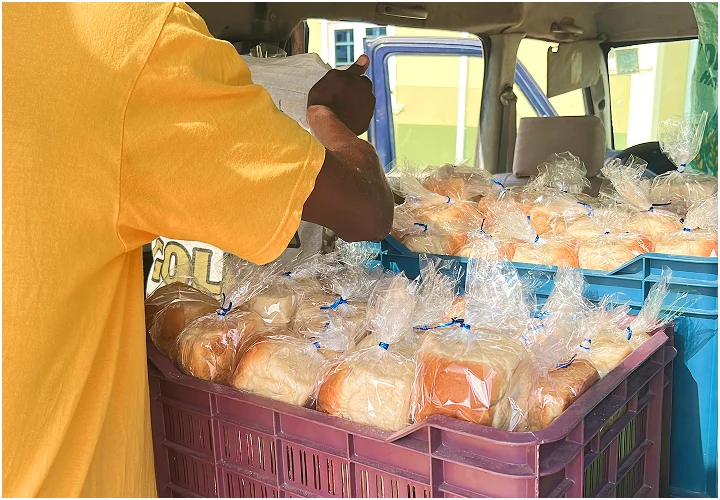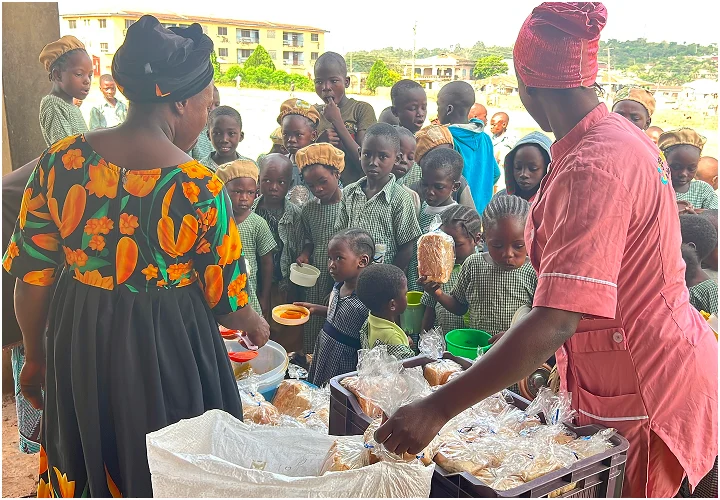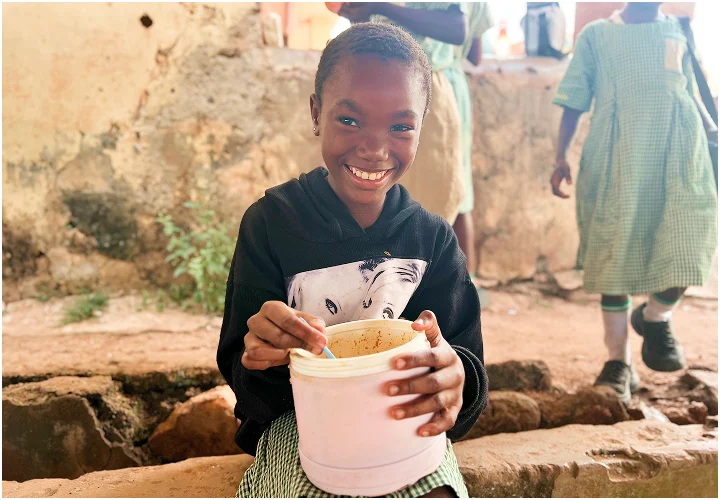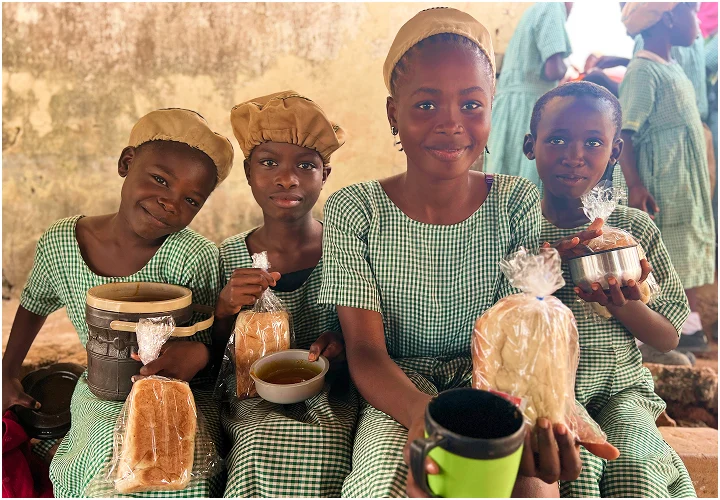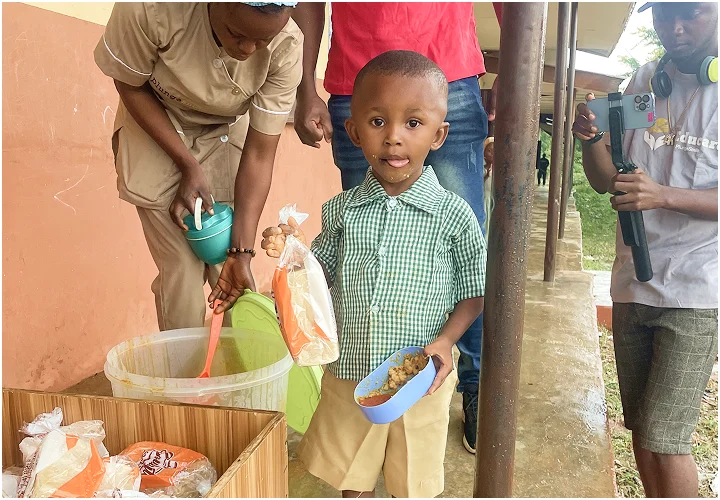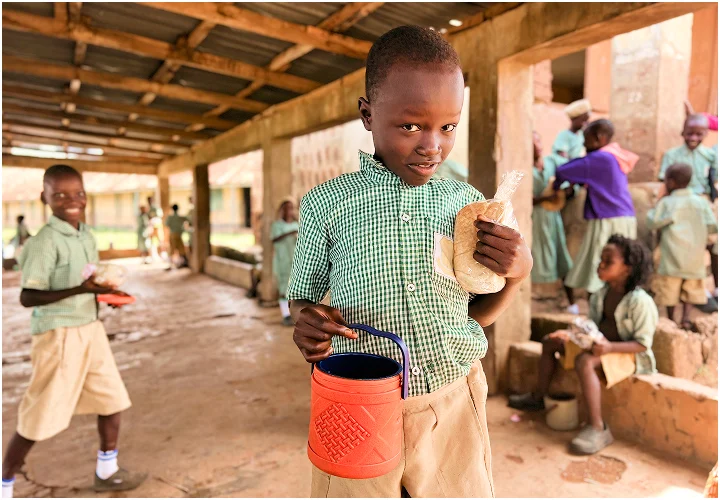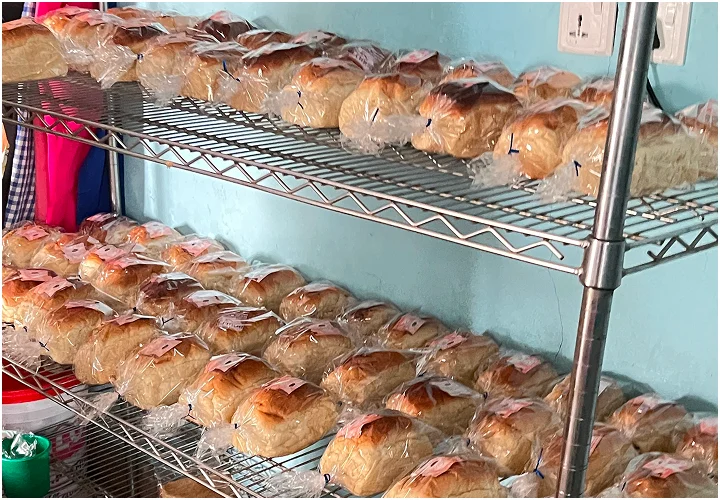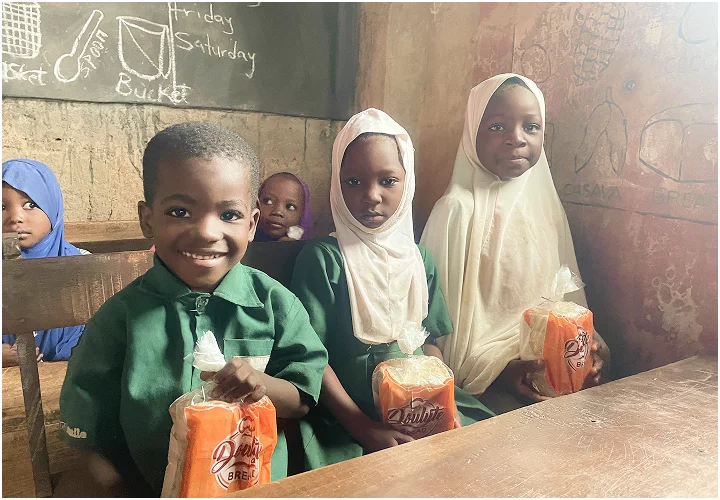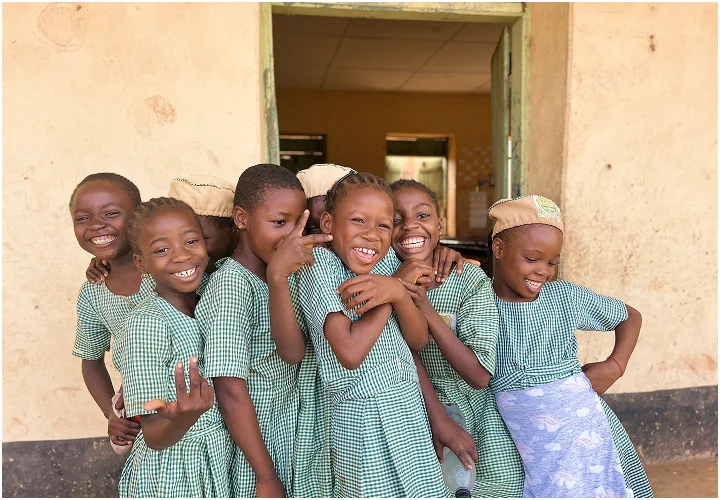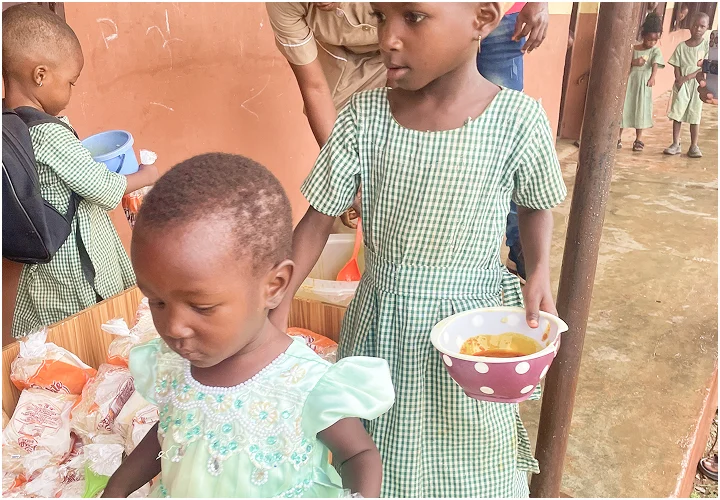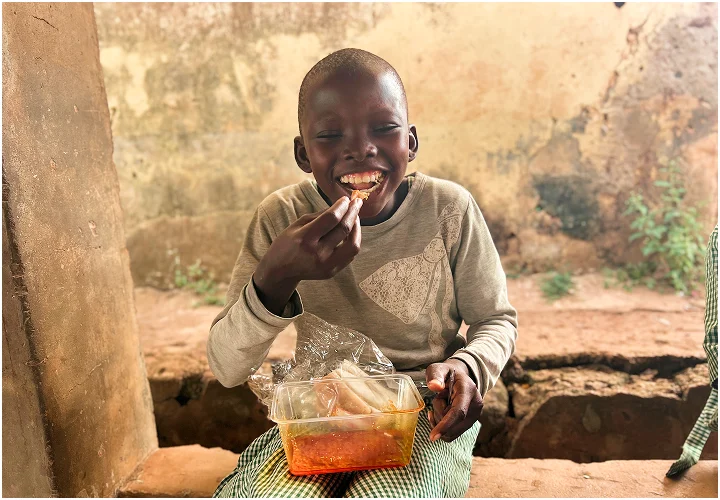Plungesmile Programs
School Feeding Scheme
Nourishing Minds for Better Learning
About the Programme
Plungesmile’s School Feeding Scheme provides daily nutritious meals to children across six public schools in Esie, Kwara State. The programme was created to address rising hunger, food insecurity, and the economic challenges that prevent many families from providing consistent meals for their children.
Esie is a rural, farming-based community where most households depend on smallholder agriculture. Families grow staple crops like beans, yam, millet, maize, banana, and cassava but still struggle due to low farm yields, climate pressures, limited irrigation, high production costs, poor market access, and low access to technology. These challenges reduce household income and worsen food insecurity.
The Nutrition Challenge
Many children arrive at school hungry and struggle to concentrate, retain information, or stay in class. This contributes to high absenteeism and dropout rates, as parents often prioritise immediate work over long-term education.
The School Feeding Scheme was launched to provide one reliable, nutritious meal for learners each school day. More than 900 children now benefit from this essential programme.
What We Do
The programme focuses on providing daily meals that support learning and cognitive development, ensuring safe and hygienic meal preparation, reducing short-term hunger among school-age children, increasing concentration, attendance, and academic performance, supporting farmers and food vendors within Esie, and creating a more stable school environment through consistent nutrition.
The School Feeding Scheme currently operates in six public schools:
Meals are prepared by trained community cooks using ingredients purchased directly from local farmers. This supplies children with fresh, healthy food and strengthens the rural economy.
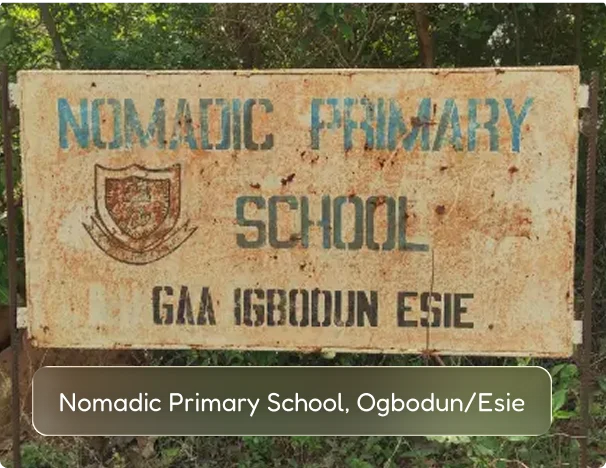
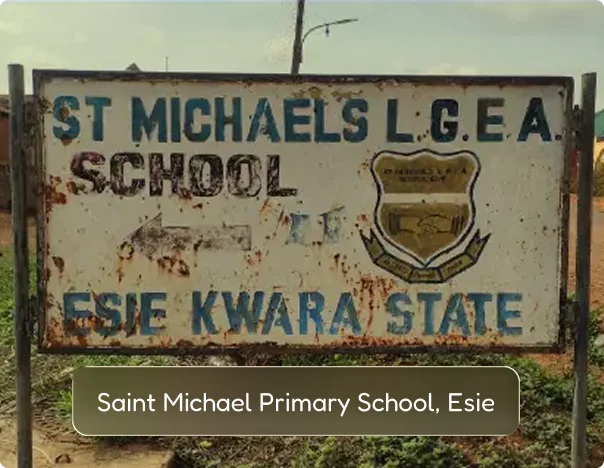
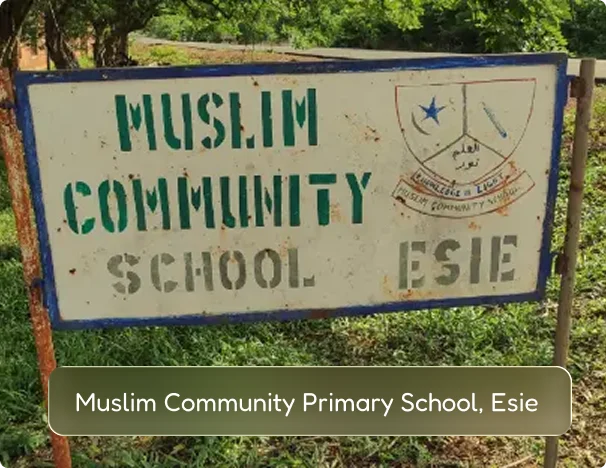


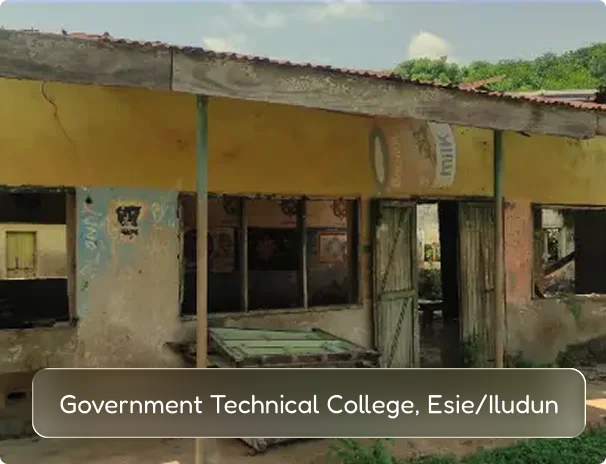
Why It Matters
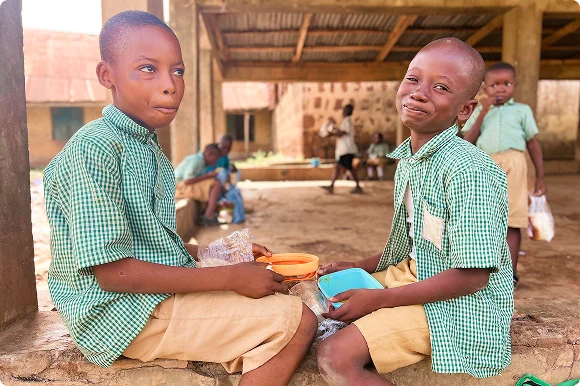
Hunger is a major barrier to learning in rural Nigeria. Children who attend school without food experience fatigue, poor focus, and reduced participation. Ensuring that learners receive one nutritious meal during school hours significantly improves their ability to learn and remain in school.
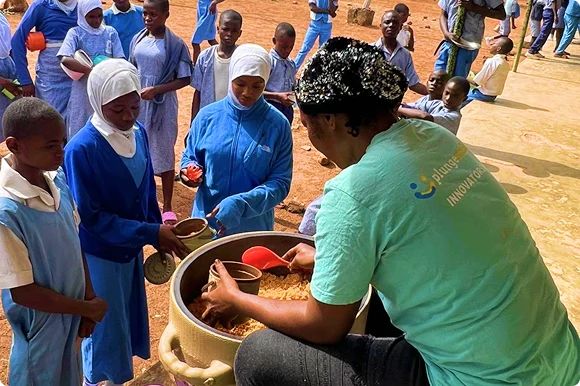
The School Feeding Scheme helps to improve classroom engagement, increase enrollment and reduce dropout rates, enhance nutritional health, support children from low-income households, strengthen local agricultural markets, and create income opportunities for cooks and food suppliers.
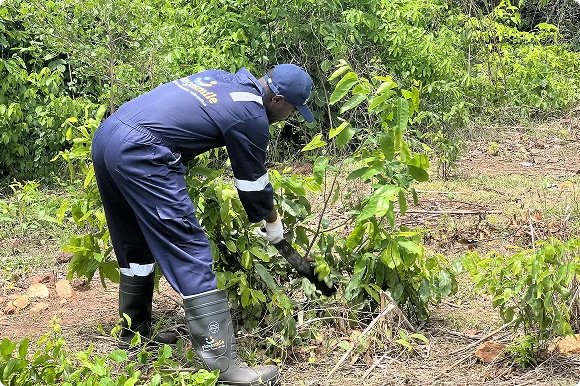
To strengthen long-term sustainability, Plungesmile also launched the Sustainable Farming Scheme, which cultivates staple crops used directly in school meals. This reduces feeding costs and increases supply stability. Visit the Sustainable Farming Scheme page to learn more.
Impact We See
More than 900 learners now receive daily meals that support their health, focus, and attendance. Teachers have reported improved participation, energy levels, and consistency in school engagement.
The programme’s effect is clear in the voices of the children:
“I love the food that Plungesmile is giving us. I will cry if they stop giving us food at school because the food is better here and keeps me from being hungry and tired. I will not stay on for the afternoon lesson if I am hungry.”
– Gbenga Alayande
Government Technical College, Esie/Iludun
“The food makes coming to school more fun, especially the jollof rice. Maybe we can be coming to school on Saturdays and Sundays as well.”
Oladipupo Sunday,
Student Beneficiary
“Thank you, Plungesmile.”
David Ayekomogbon,
Government Technical College
“I enjoy the food very much. It makes me happy, eager to come to school and learn.”
Saka Yusuf
Student Beneficiary
Beyond the classroom, the local community is also benefiting.
Farmers have gained new markets for their crops.
The programme stimulates economic activity while supporting children’s education and well-being.
Cooks have earned reliable income.
Be Part of the Mission
Food fuels learning. Your support helps us keep children nourished, focused, and excited to learn each school day. Join us in expanding this essential programme to more children across rural communities.
Our Other Programs
Kit up a child
Kit up A Child is a scheme designed to provide complete school clothing attire for pupils in public schools.
Open Arms
Plungesmile Open Arms was launched for individuals and families with meagre income or no primary source of sustenance.
Audio Visual Learning
PSF audiovisual learning creates and serves as an enlightening platform for students in underserved rural areas.


